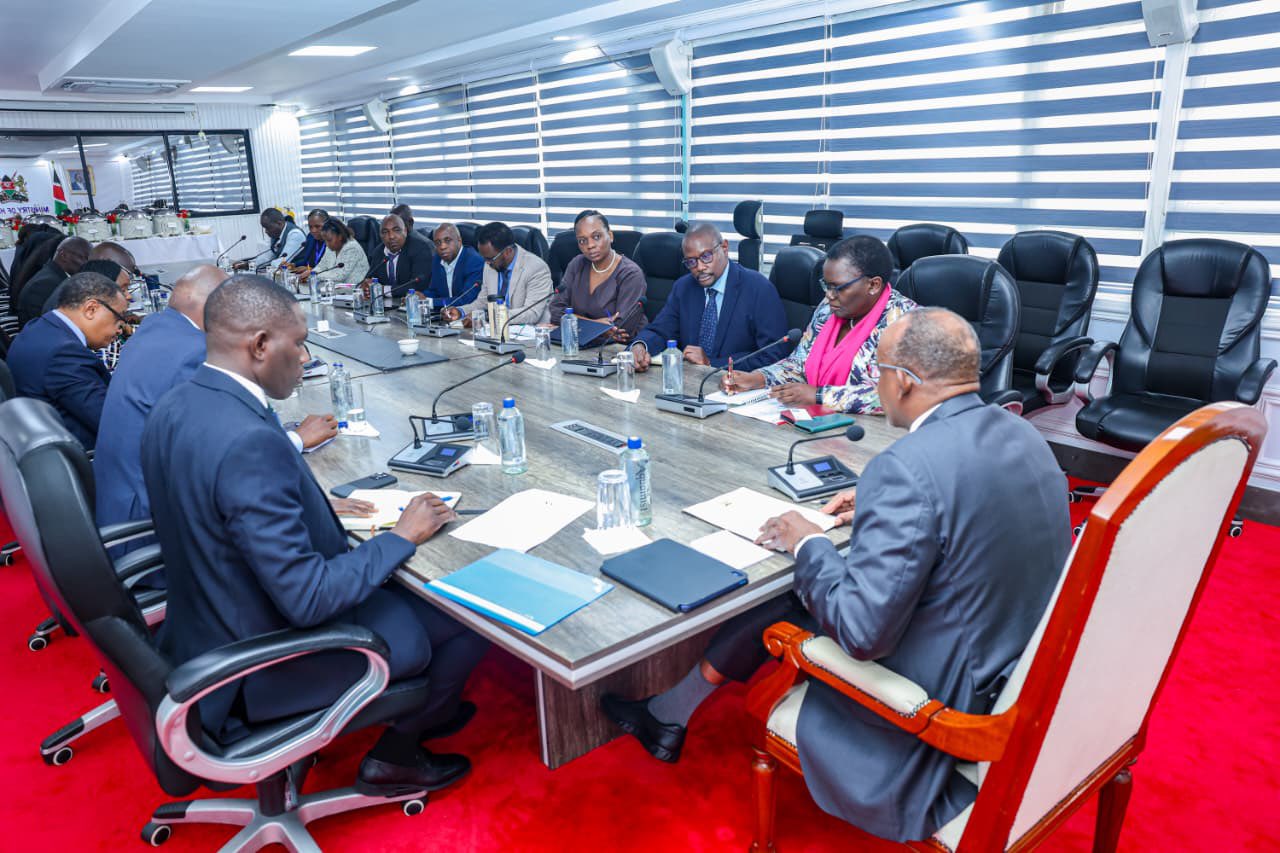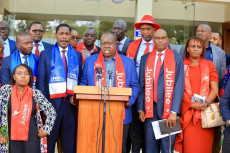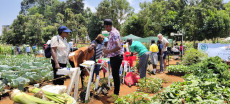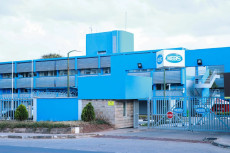- Beyond infrastructure, the new initiatives are expected to improve local emergency response efficiency, saving lives and reducing casualties from accidents.
On November 24, 2025, the Cabinet Secretary for Health, Aden Duale, met with a delegation from the African Development Bank (AfDB) to deliberate on transformative health projects poised to revolutionise service delivery across Kenya.
The discussions signaled a step toward modernising health infrastructure, expanding access to underserved communities, enhancing equity in care, and embedding sustainable systems that will guarantee quality, accessible, and equitable healthcare for all citizens.
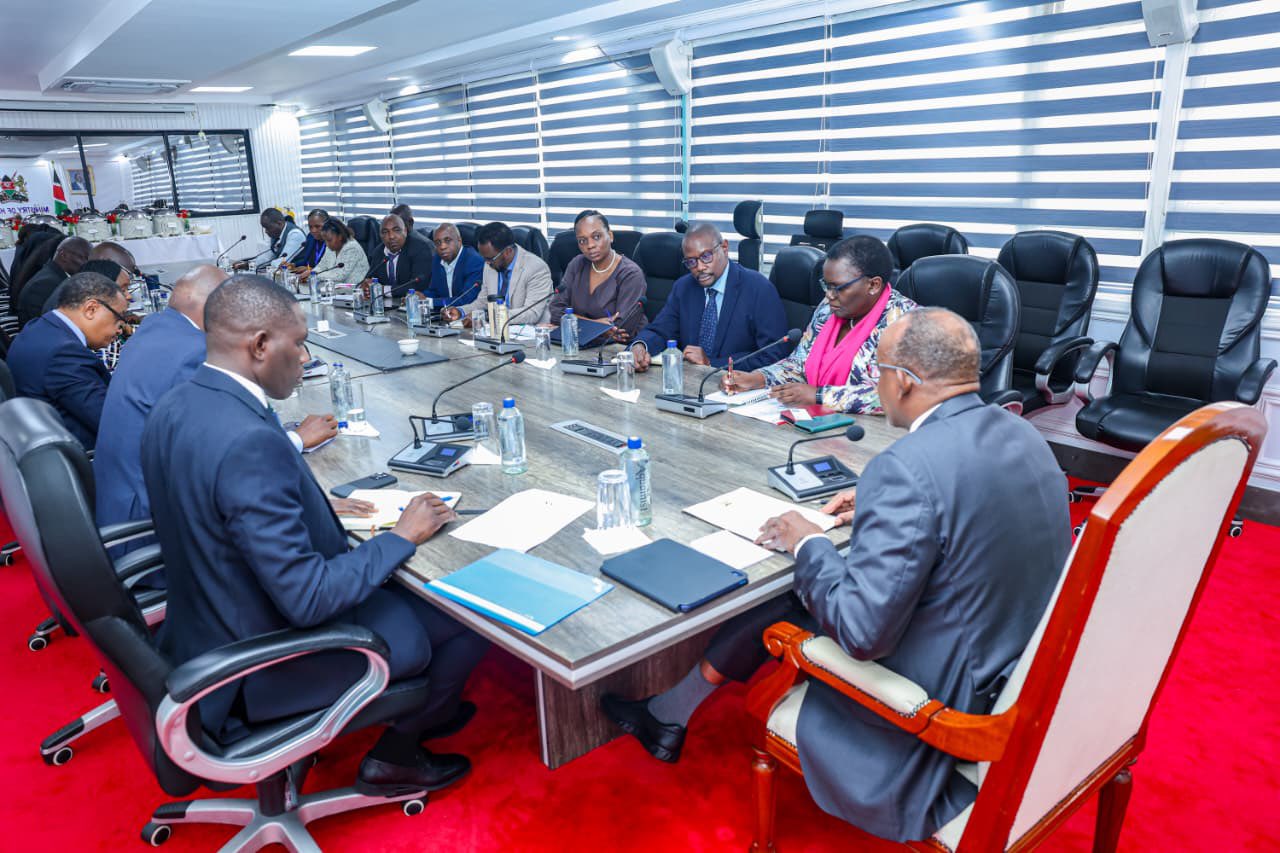
At the heart of the talks was the planned construction of a Level 6 specialised trauma hospital in Londiani. With road traffic accidents placing an increasing burden on the region’s health facilities, the hospital is envisioned as a lifeline a centre equipped to deliver rapid emergency care and save lives in critical moments.
Read More
Equally significant was the review of progress on the proposed Level 6 Centre of Excellence in Bungoma County. Designed to provide specialised treatment for Sickle Cell Disease and serve as a regional blood transfusion hub, the facility promises to strengthen Kenya’s capacity to respond to both routine and emergency medical needs. For families grappling with lifelong conditions, the centre offers hope of improved management and sustained care.
The meeting also explored the launch and full operationalisation of the East Africa Kidney Institute (EAKI), a collaborative initiative between the Government of Kenya and its partners.
Once operational, EAKI will transform kidney care by offering comprehensive treatment, specialised training for medical professionals, and reducing reliance on costly international referrals. For many Kenyans, this means life‑saving care will be closer, more affordable, and more reliable.
CS Duale has reaffirmed the government’s commitment to decentralising specialised medical services, ensuring that every Kenyan regardless of location can access high‑quality and affordable care. He emphasised that these initiatives not only strengthen the health sector but also align with the Government’s Bottom‑Up Economic Transformation Agenda, contributing to Kenya’s broader social and economic resilience.
“These initiatives will decentralize specialized healthcare, improve access for all Kenyans and contribute to economic and social development, marking a major step toward Universal Health Coverage (UHC),” he said.
The discussions brought together key figures in the health sector, including Medical Services Principal Secretary (PS) Dr Ouma Oluga, Director General for Health Dr Patrick Amoth, Curative and Nursing Services Director Dr Toro, and Head of Infrastructure, Projects and Grants Dr Hezron Omollo. Their presence underscored the collaborative spirit between government and development partners in advancing Kenya’s health agenda.
Beyond infrastructure, the new initiatives are expected to improve local emergency response efficiency, saving lives and reducing casualties from accidents. They will lower medical costs, create employment opportunities for trained specialists, and make the management of lifelong diseases such as sickle cell more effective. Together, these projects represent not just an investment in healthcare, but a promise of resilience, equity, and hope for generations to come.
Stay connected with us on WhatsApp and Facebook for instant updates and breaking news as it happens.

